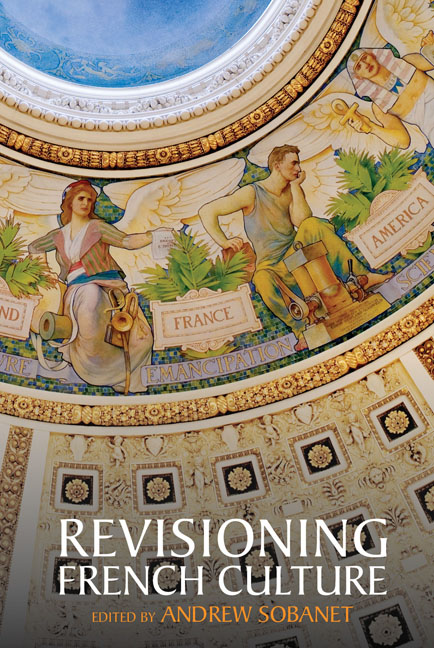Book contents
- Frontmatter
- Contents
- Introduction
- I France in Perspective: The Hexagon, Francophonie, Europe
- II Visions of the World Wars, or L’Histoire avec sa grande hache
- III Refractions and Reflections
- IV French Literature, Revisioned
- V The Subject in Focus
- VI Philosophical Lenses
- VII Coda
- Contributors
- Acknowledgments
- Index
11 - Osnabrück Station to Jerusalem
- Frontmatter
- Contents
- Introduction
- I France in Perspective: The Hexagon, Francophonie, Europe
- II Visions of the World Wars, or L’Histoire avec sa grande hache
- III Refractions and Reflections
- IV French Literature, Revisioned
- V The Subject in Focus
- VI Philosophical Lenses
- VII Coda
- Contributors
- Acknowledgments
- Index
Summary
‘Priere d’insérer’
Going to Osnabrück is like going to Jerusalem, it's finding and losing. It’s exhuming secrets, resuscitating the dead, letting the mute speak. And it's losing the absolute freedom to be Jewish or not be Jewish at will, a freedom that I enjoy conditionally.
When my grandmother Omi left Germany in ‘38 and joined us in Oran, when a Jew could no longer escape except through a rare chance of History, the Stories of Osnabrück began. It is commonly believed that the great Misfortune struck in 1933, but that's an error meant for the History textbooks. Already in 1928 ordinary anti-Semitism had become Nazi and extraordinary. And death was the master of the City.
If you go to Osnabrück as to Jerusalem, behind the curtain of globalized Great History you will glimpse innumerable great little singular tragedies, which were kept secret in the quarters of this city made glorious by Charlemagne, infamous under the reign of NSDAP, and raised back up today into a courageous City of Peace and crusader for Human Rights.
If you go to Osnabrück, the Secret says to me, walk down the Great Street, in front of the famous Jeweler-Watchmaker's shop, a hundred meters from the Jonas house, your family's house, and look in the shop windows. Perhaps you will see trembling at the back of memory a board of pinned photographs, spectral butterflies, images of all the people who dared to go into the shops of Jude, during the black years. Perhaps not. It's here, beneath the windows of the Jonas house, that Omi used to watch the streets and the squares fill up to overflowing with a crowd drunk on hatred, and the banners of the Reich, which gave it the brilliance of a terrible opera, came up to her balcony. The sky above Rolandstrasse was red from the pyre of the Synagogue.
One doesn't know. One thinks one knows. One doesn't know that one doesn't know. By casting (itself as) light, History also blinds. I was blind and I didn't know it. But a premonition whispered to me: go to Osnabrück as to Jerusalem and ask the walls of the city and the paving stones of the sidewalks what is hidden from you.
- Type
- Chapter
- Information
- Revisioning French Culture , pp. 157 - 170Publisher: Liverpool University PressPrint publication year: 2019



